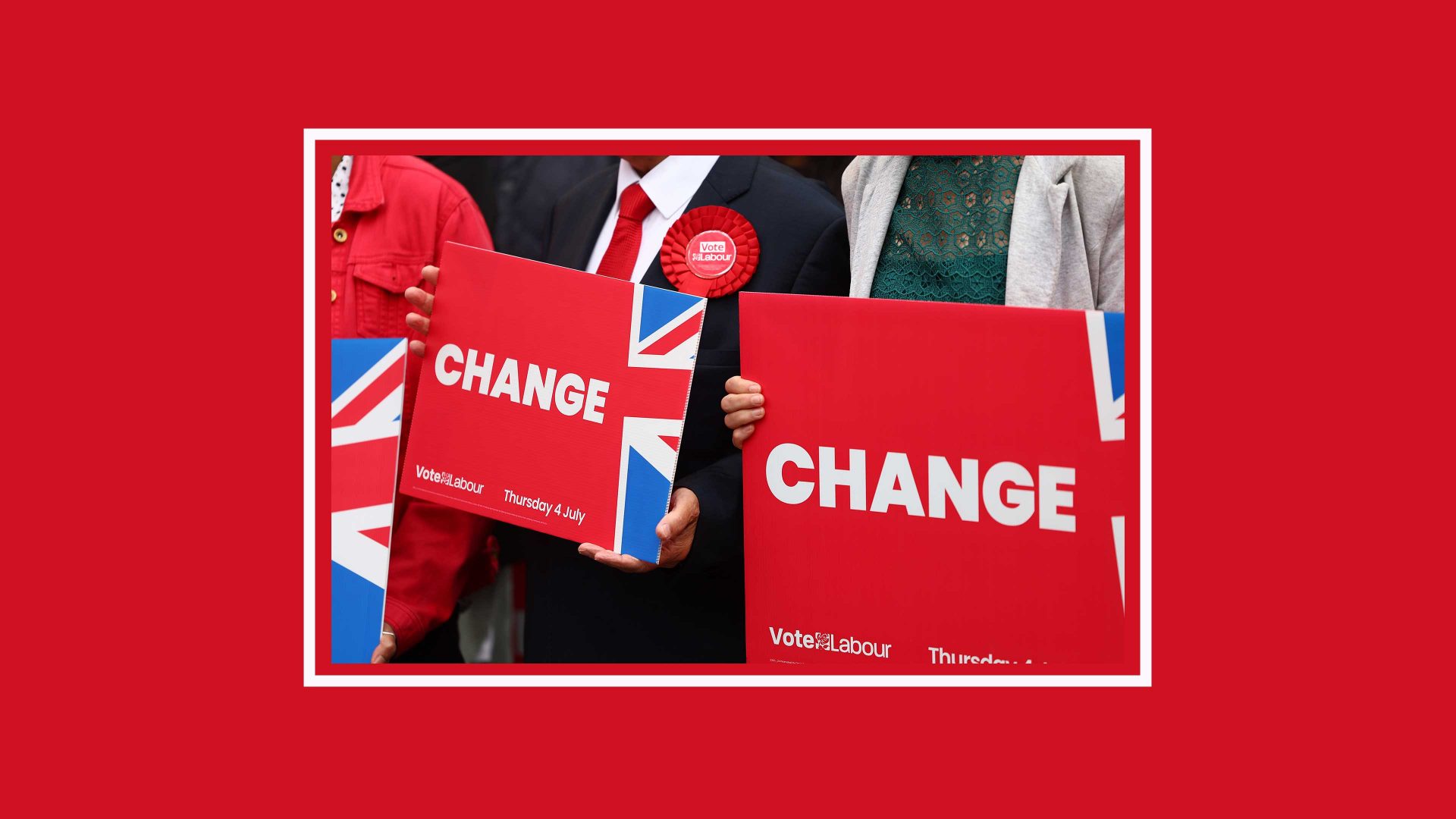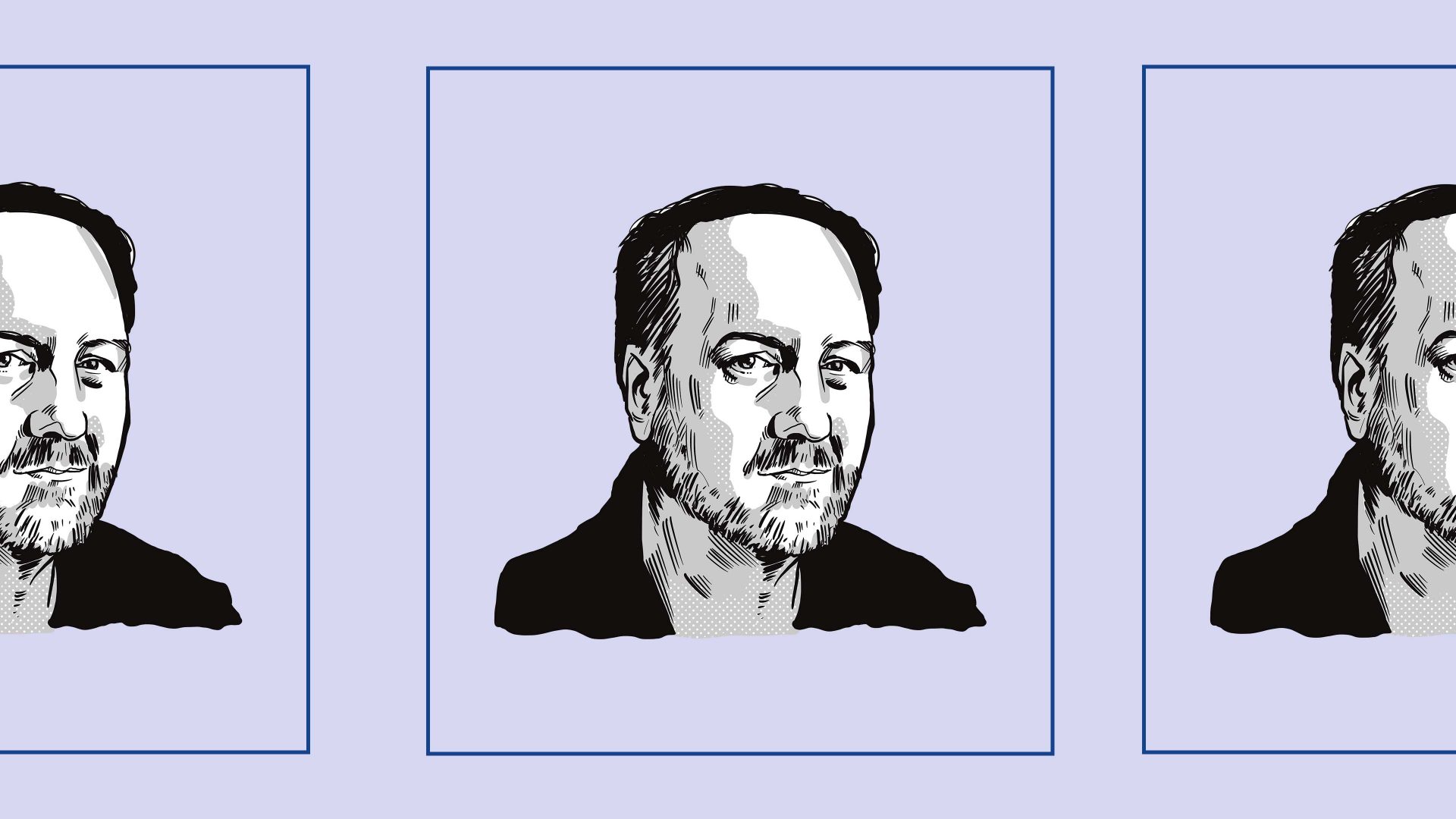The new prime minister will barely have time to declare in Downing Street that a great era of change lies ahead, to settle into his No 10 office, and to fill the ministerial ranks of his government before Keir Force One whisks him off to face his first geopolitical challenges.
In Washington DC, from next Tuesday to Thursday, Nato members will assemble to mark the 75th anniversary of the alliance – an alliance that, after President Biden’s dismal performance in last week’s presidential debate against Donald Trump, is once again in great jeopardy.
At the CNN-hosted event on June 27, the presumptive Republican nominee said that, if victorious on November 5, he would broker an immediate peace in Ukraine (code for giving Vladimir Putin most of what he wants) and that he would no longer tolerate America “paying everyone’s bills” simply to hold Nato together.
For Starmer, the Nato gathering will not only be a one-stop-shop photo-opportunity in which he can make his debut on the international stage as a newly elected head of government. It will also provide him with a platform to underscore Labour’s unequivocal commitment to Nato and to the continued support of President Zelensky in Ukraine.
The following week, on July 18 – only a fortnight after polling day – he will himself play host to between 40 and 50 continental leaders at the fourth meeting of the European Political Community at Blenheim Palace.
Only two years old, and the brainchild of the French president, Emmanuel Macron, the EPC is a fledgling intergovernmental forum, established after Putin’s invasion of Ukraine to convene a broader range of countries than the membership of the European Union in the service of democratic values, security and continental collaboration.
The summit will offer Starmer his first chance to give a flavour of how he seeks to reset the UK’s role in Europe; and, indeed, in the wider world.
Winston Churchill was born at Blenheim, proposed to Clementine Hozier there in 1908 and is buried in the nearby churchyard at Bladon. “This great house,” he wrote, “is one of the precious links which joins us to our famous past, which is also the history of the English-speaking people on whose unity the future of the free world depends.”
The evocative character of the summit’s location, I am told, is not lost on Starmer. Nor has he forgotten that Churchill, at the 1948 Congress of Europe in The Hague, declared: “In the centre of our movement stands the idea of a Charter of Human Rights, guarded by freedom and sustained by law.”
One of the principal draftsmen of the subsequent European Convention on Human Rights was the Conservative MP David Maxwell-Fyfe, who had also been deputy British prosecutor at the Nuremberg trials.
It is true that Clement Attlee’s government nursed initial reservations about the convention, which his chancellor, Stafford Cripps, foreign secretary, Ernest Bevin, and the PM himself feared, with its emphasis on classical liberties rather than social entitlements, might be an impediment to Labour’s plans for postwar Britain. But these anxieties were overcome quickly enough for this country to become the first to ratify the text, on March 8, 1951.
Starmer, for his part, has experienced no such equivocations about the ECHR. He was, after all, a human rights lawyer long before he was a politician. In 1999, he published the door-stopper text book, European Human Rights Law: the Human Rights Act 1998 and the European Convention on Human Rights. His politics – his moral compass – owes more to the jurisprudence of human rights than it does to the canon of socialist doctrine.
Only disappointment awaits pro-Europeans who expect the new PM suddenly to ditch Labour’s manifesto commitment to “stay outside of the EU”, or even to show some prime ministerial ankle on renewed membership of the single market and customs union.
There will doubtless be bromides aplenty at Blenheim about “making Brexit work better”, Starmer’s love of Europe, and, perhaps, the Euros final, which will have been held four days before. But the lapin of renewed EU membership will definitely not be pulled from the PM’s chapeau.
Instead, we can expect Starmer to brandish the convention as a means of signalling that, when it comes to Europe, he is not Rishi Sunak with a red rosette.
There were few spectacles more shabby during the campaign than the Conservative prime minister’s mealy-mouthed position on the ECHR.
As he put it at the BBC prime ministerial debate on June 26: “If a foreign court… forces me to choose between our national security and membership of that court, I’m choosing our security.”
At least Suella Braverman and Nigel Farage are candid enough to say that they want Britain to leave the ECHR. Sunak could not even muster that level of clarity.
All of which provides Starmer with an opportunity to proclaim – quite truthfully – his emotional, intellectual and political attachment to the convention and his unambiguous determination to nurture the UK’s commitment to it.
It is important that he do so, and not only to spell out the difference between himself and his Tory predecessor. Europe, in the most general sense, stands at a crossroads and, even outside the EU (for the foreseeable future), the UK has a hugely important part to play in ensuring that it pursues strength, collaboration and what David Lammy calls “progressive realism” rather than the path of weakness, disaggregation and outdated thinking.
There is no direction to history, but there are certainly tides and surges: in this case, rip currents pulling many parts of the free world towards nativist populism, often tinged by autocracy.
Last month’s elections to the European parliament were a significant boost to far right parties across the continent, weakening both Macron in France and Olaf Scholz in Germany.
On Sunday, the French president was delivered an additional hammer blow by the historically strong performance of Marine Le Pen’s National Rally in the first round of the snap parliamentary elections that he himself called.
It isn’t open to Starmer, outside the EU, to help stabilise its Franco-German leadership. But he can put the turbo-charged strength of a newly elected head of government in the service of Europe, more broadly understood.
This is not about pieties, platitudes or lazy invocations of Jean Monnet and Robert Schuman, the founding fathers of European unity. Starmer’s pitch should have at its heart the clear and present danger to the western alliance represented both by the nationalist isolationism of the continental far right and – though he will doubtless choose his language with care in this context – the increased likelihood of Trump’s return to the White House.
In anticipation of this, Lammy has deftly established informal diplomatic links with MAGA-world, including friendships with JD Vance, the prominent Ohio senator who has made no secret of his ambition to be Trump’s running mate; and with Chris LaCivita, one of the former president’s most powerful campaign strategists. He is also on cordial terms with Jim Risch, a pro-Trump senator from Idaho.
If the Big Orange Man is indeed re-elected, Lammy will make use of these connections for all he is worth to urge the new administration not to leave Zelensky in the lurch: a tall order indeed. Meanwhile, he has simultaneously argued, as he put it in the May/June issue of Foreign Affairs, for “a new geopolitical partnership with the EU”.
What both he and his boss understand with clear eyes – as does Macron – is that the US is simply no longer prepared to preside over a pax Americana or to play the role of global sheriff. Trump’s brash “America First” rhetoric is only the most explicit end of a continuum that embraces a great many Democrats, too.
The political elite of the world’s only hyperpower is losing its taste for the world view of Franklin D Roosevelt, John F Kennedy and Ronald Reagan, and turning back to the words of George Washington’s Farewell Address in 1796, with its warning against “the insidious wiles of foreign influence” and “political connexion” with other countries.
The only variable is one of pace: the Democrat withdrawal from the world stage will be slower, less complete and more dignified than it would be under Trump. But there is greater US bipartisanship on the direction of travel than many Europeans have yet acknowledged.
One of Starmer’s messages at Blenheim, therefore, must be steely, uncompromising and forward-facing: Europe has to increase its defence capacity dramatically, and do so at speed. It would be a good opportunity for the new Labour government itself to set a deadline for raising its military spending to 2.5% of GDP (the party’s manifesto promised only that this target would be reached “as soon as resources allow” – an instance of fiscal caution that is incompatible with the same document’s declaration that “the first duty of any government [is] to keep the country safe”).
In Dresden in May, Macron identified the need for a “more independent, more sovereign Europe able to defend itself and survive against all threats”. There was a time when such a remark could have been attributed to France’s traditional suspicion of American hegemony. Today, that hegemony is being dismantled, and what the French president said is merely a statement of fact.
At Blenheim, Starmer should double down on this strategic position, presenting himself as a robust champion of radical centrism. He can remind his audience that the UK is still the sixth most powerful military nation in the world, and the most powerful in Europe. It is a member of the “Five Eyes” global intelligence alliance.
Though the British army badly needs to be strengthened, the UK’s maritime and nuclear strength remains formidable. It has been the second largest military donor to Ukraine, outspent only by the US. Now other European nations must step up to the plate.
In the prelude to the Iraq war, Donald Rumsfeld, the US defense secretary, drew a mischievous distinction between “New” and “Old” Europe: by which he meant those European nations that supported the US, and those that did not.
Today, such distinctions are obsolete. Europe must learn to behave as a bloc; wary of Russia to the east, weaning itself off America to the west. There is no longer slack in the system for the sometimes decadent arguments of the past over the rival claims of Atlanticism and the European project.
Nato may well survive; we should fervently hope it does. But the era in which it was the insurance policy of global security is drawing to a close. We can no longer assume that the cavalry is coming.
It is quite a baptism for a new prime minister. Only 13 days after kissing hands, Starmer will have to say all this – or something like it – to a high-powered audience that may not be ready to embrace the transformative change that is needed. In truth, it is an experience he had better get used to.




